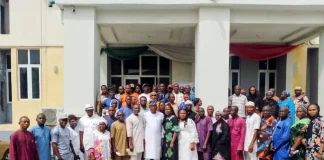BizWatch Nigeria, a leading business media platform, had its monthly conversation on Twitter Spaces on Wednesday evening, looking into the pressing subject of student loans and subsidy removal.
The topic for BizWatch Nigeria’s conversation for June 2023 is “Unpacking The Impact Of Student Loans And Subsidy Removal”. The conversation which was moderated by BizWatch Nigeria’s Adepeju Aina had a lot of attendance including experts such as Bright Enabulele, the founder of Oduwa Blockchain Solutions, and Timi Ajayi, the co-founder of and CEO of Riltee.
Student loans
The conversation began with a discussion of student loans and their impact on educational access and debt.
While the participants acknowledged that, although student loans could offer financial assistance/relief to students of public institutions, they might also leave them with a significant debt following graduation.
Some of the participants praised the Federal Government (FG) for approving the bill while some other participants questioned the efficiency of the bill.
- How effective is the bill?
- Will there be enough resources to go around all the public tertiary institutions?
- Will the system be transparent?
- Will jobs be provided for students to reduce the weight of the debt?
Concerns were also raised about the requirements for accessing the loans.
Subsidy removal
The effect of subsidy removal has been witnessed by thousands of Nigerians. The inflation rate jumped to 22.4% in the month of May which is higher than the figure recorded in April as released by the National Bureau of Statistics (NBS).
At the BizWatch Nigeria’s Conversation, the impact of the subsidy removal was discussed. Ever since the removal of the subsidy was announced on May 29, 2023, by President Tinubu a lot has changed.
The removal was like a ripple effect that touched a lot of things, transport, food, commodities amongst other things. The price of fuel went up and there was a scarcity which generated a lot of queues which caused traffic.
While some of the participants praised the government for removing the subsidy, they called on the government to properly allocate the resources and curb oil theft.
Just as in other discussions hosted by BizWatch Nigeria, solutions were provided. Some of them are;
- Exportation: Federal government should find avenues to increase Nigeria’s exportation rate and reduce the rate of importation.
- Agriculture: Nigeria needs to focus more on agriculture, this will increase the revenue, and lower poverty, and food scarcity.
- Transportation and road: The transportation system should be worked on as well as well as the roads.
- Taxes: Tax is a significant source of revenue for the government which is used to build infrastructure and used to better the nation.
- Corruption: As addressed during the conversation, corruption is one of Nigeria’s major problems. Nigeria loses a lot of money, and resources to corruption.
- Dependency on oil: The dependency on oil by Nigeria is another major problem, without petroleum oil what does Nigeria have to fall back on? The government and its people have to reduce their dependency on oil and its revenue.
- The requirements for the student loans should be made easier.
- Transparency: The process for the student loans as well as other governmental procedures should be transparent. The government needs to be held accountable and they can start by being transparent.
- Policies: Policies need to be created and enforced.
- Employment: The unemployment rate should be addressed, and the government should consider solutions and make jobs available in order to help youth secure jobs. Especially those will loans to pay back; without a job, the student loans will see a lot of defaults.
- Government spending: Government spending should be reduced and the resources should be channeled rightly.
More importantly, we need to have a positive mindset and support the government.
The Twitter Spaces discussion on the impact of student loans and subsidy removal byBizWatch Nigeria provided excellent insights into the complexities surrounding these policies. The discussion stressed the importance of taking a comprehensive approach that takes into account the interests of students, educational institutions, and the economy as a whole.
The discourse led to a wider understanding of the difficulties and potential solutions in the field of higher education financing by deconstructing the ramifications of these policies and proposing meaningful ideas.













